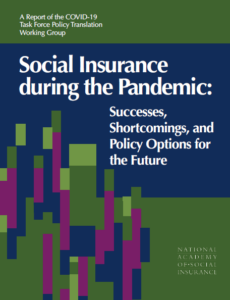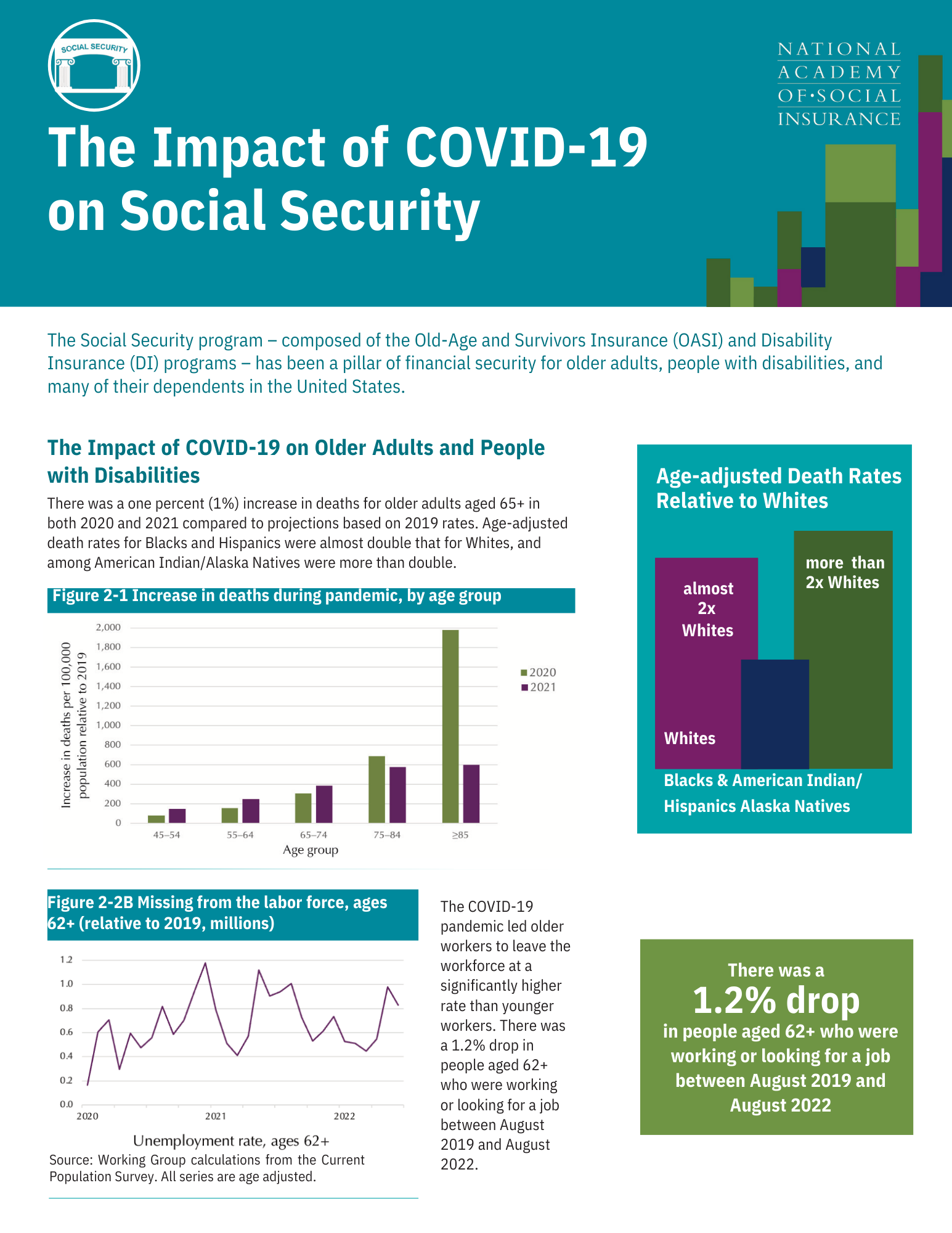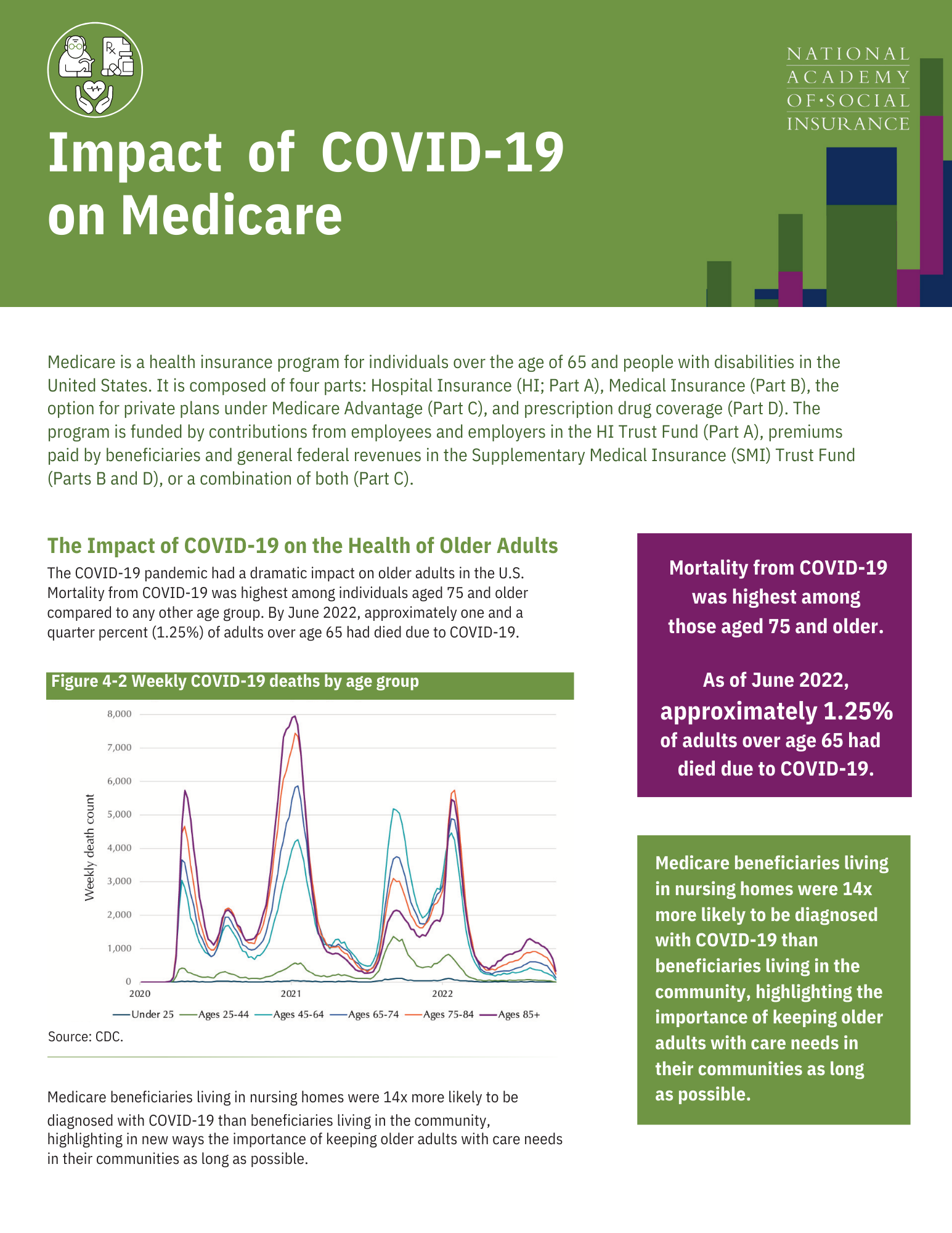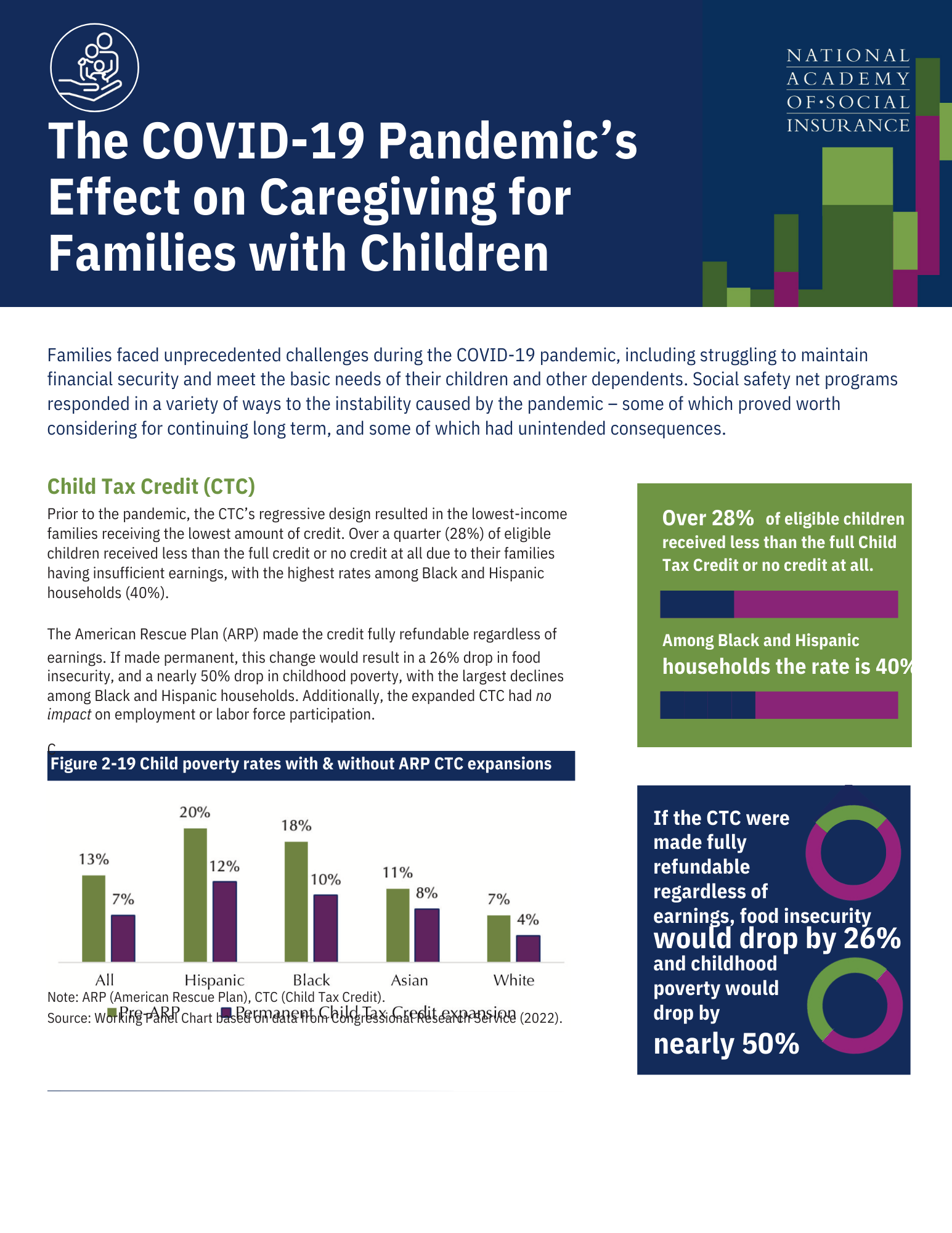COVID-19 Impact: Social Insurance Responses
The COVID-19 pandemic has laid bare major weaknesses and gaps in our existing social insurance ecosystem, especially in addressing systemic economic inequality affecting various communities.
COVID-19 Legislative Response
June 2023
This report assesses the performance of pre-existing social insurance and related programs, temporary changes in those programs made in response to the pandemic, and some new federal and state policies.
August 2023
The COVID-19 pandemic ultimately had negligible effects on the long-term projected financial condition of the overall program.
August 2023
Contrary to expectations, the COVID-19 pandemic slightly extended the projected lifespan of the Medicare Hospital Insurance (HI) Trust Fund. Unfortunately, the reasons for this deferral of the trust fund’s depletion date were largely driven by negative health effects on beneficiaries
August, 2023




